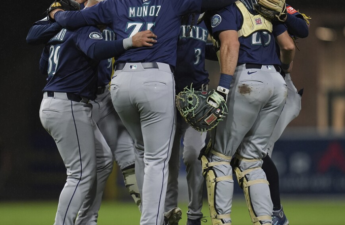Something transpired today, forging just the right mix of wind and rain and airborne upheaval to bring every remaining leaf off the trees in Highland Park. Not really every leaf, of course, for a quick examination of the trunked masses themselves reveals that they still look more the part of autumn plumage than winter barren. Yet whole walkways were obscured, buried in seven-deep layers of yellow dying offshoots of their wise ancient ancestors. Sometimes kicked up into drifts closer to ten- or twenty-deep by the still churning wind. The ability for trees to shed so heavily and yet still retain their dignity reminds me of my own relationship with my hair, which comes out in thick strands each morning only remain in an unnoticed mass still atop my head.
Unlike the trees, however, I am not destined to go bald this winter. At least, that’s the hope.
It was not destiny, but perhaps long overdue, for me to pick up a library card at the Highland Park Public tonight. I remember when being in a new community without a library card was an aching couple days’ torture, not the norm of a few weeks or even months. The first trip to Georgetown’s public library with its upstairs kids section still tantalizes my memory: it was a place of sheer magic. Even the first jaunt to Seaside’s sad answer, to the section I would live in for years I “should” have been in school, the place where I would first learn the quiet steady rhythms of working in hallowed halls of books. It was in getting acclimated to school libraries that far surpassed their public counterparts that I stopped picking up public library cards so regularly, then getting used to acquiring books permanently in California that made a more substantial separation.
But tonight I remembered the budget and the desire to expand my reading, the need to fulfill important recommendations of friends without having to add to the tally of box-filling to be hauled across the country whenever I can re-escape to the west. And so I confronted the yellow-leaf roads, the paths of strewn mayhem still aswirl in onrushing storm. Remembered to bring my proof of residency, my proof of New Jersey driving ability, even my proof of ability to haul books undamaged through the rainswept streets of Highland Park. The woman was kinder than the Jersey average, not yet the grizzled cynic suspecting each new patron of trying to undermine the very system of the free and peaceful transfer of tomes.
It was on my way back, via the grocery store, that I had time to contemplate respective priorities in our society and the very nature of what is free and what requires money. Surely libraries, the uncharged exchange of ideas and knowledge, are one of the greatest contributions to human development we have ever created as a species. And yet, the fact that there is an expectation of payment for food while books remain freely accessible seems somewhat distressing. Sure, I’m spending time volunteering in places that try to combat this expectation, just as there are bookstores trying to set a precedent of financial consideration for access to reading. But the norm is still the norm. I grew up going to libraries and grocery stores. I suspect most of us did. What does it say about us that we can take reading for granted but are expected to devote our time to an employer in order to sustain our lives?
Trudging back into the dark night from the overlit halls of both library and grocery, laden with the weight of this new comparison, I saw a young girl on a bike nearly hit by a turning car in the yellow rain. The driver actually screamed, despite being just short of contact with the child. The girl took it in stride, good spirits, too young perhaps to understand the implications of her mortality. Too filled with wonder from the prospect of a good read or a good meal or a good old fashioned jump in a leaf pile to be worried about the very real world of moving vehicles, distraction, and reduced visibility.
Our paths are dark and treacherous, uncertain and overshadowed with doubt. And yet there is simple solace in the simple act of surviving another day, another night, to watch the constancy of nature in its steady march toward the future. The book itself is little more than pulped tree, adorned with the thoughtful decor of another’s mind. The food falls from the tree, mostly, or grows up underneath it. What are any of us, our time, in comparison to the produce of trees?
Long may they rain. Long may they reign.


